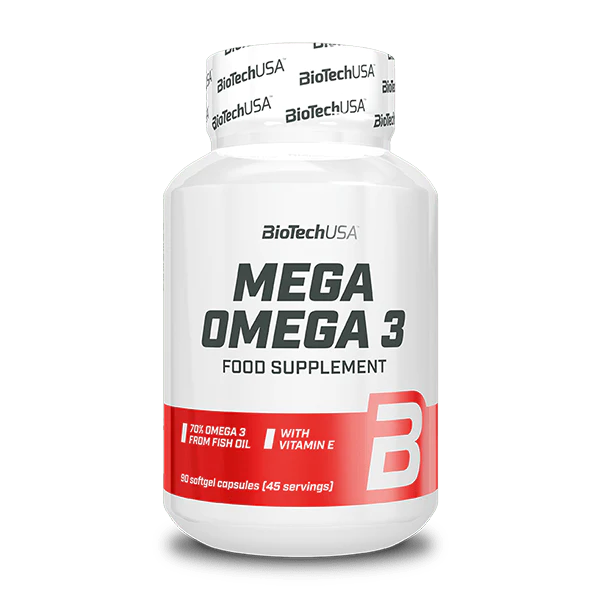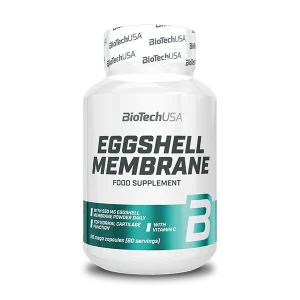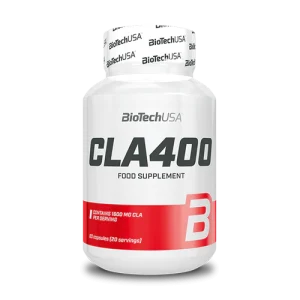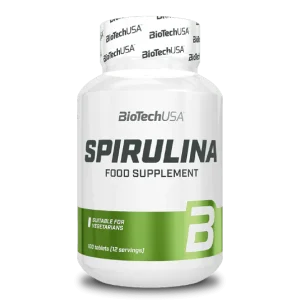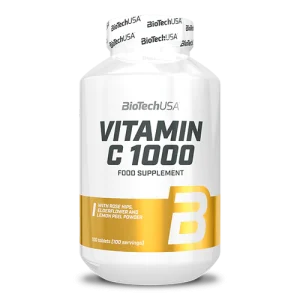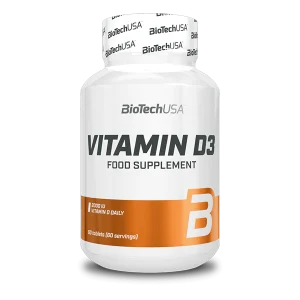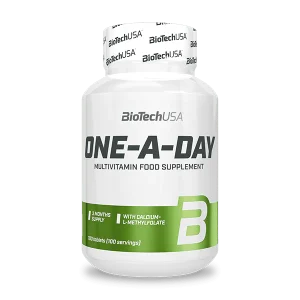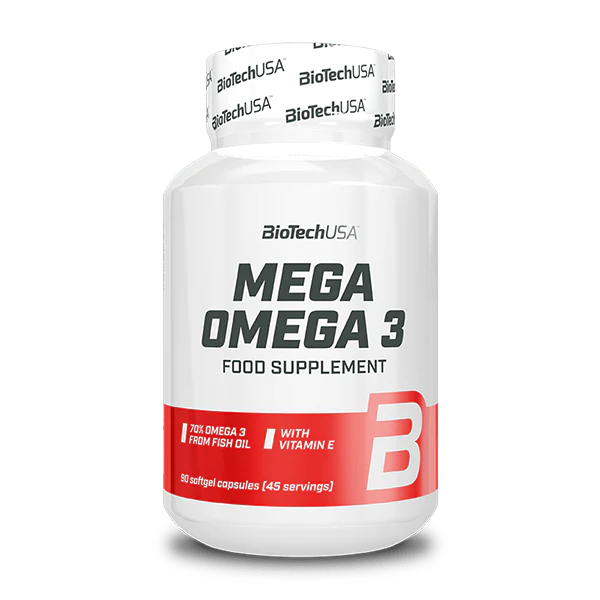
BioTechUSA
BioTechUSA is a well-known Hungarian company in the sports, nutrition and supplement industry. Here is a brief overview:
- Company Background:
- BioTechUSA is a prominent company in the sports nutrition and dietary supplement industry. The company was founded in 1994 in Hungary and has since grown to become one of the leading players in the global market. BioTechUSA focuses on producing a wide range of nutritional supplements designed to support various fitness goals, including muscle building, weight loss, and overall well-being.
- Product Range:
- BioTechUSA offers an extensive product range covering various categories such as protein powders, amino acids, pre-workout supplements, vitamins, minerals, and other nutritional supplements. They cater to diverse needs within the fitness and wellness community, providing products for athletes, bodybuilders, and individuals pursuing an active lifestyle.
- Quality Control:
- BioTechUSA places a strong emphasis on quality control and product safety. The company often employs rigorous quality assurance processes, including testing raw materials and finished products to ensure they meet high-quality standards. They may adhere to industry regulations and certifications to guarantee the safety and effectiveness of their supplements.
- International Presence:
- BioTechUSA has a significant international presence, with a distribution network that spans across numerous countries. The company is likely to have partnerships with distributors, retailers, and online platforms worldwide, making its products accessible to a global audience. The international expansion contributes to its reputation as a key player in the sports nutrition market.
- Customer Reviews and Reputation:
- Customer reviews and reputation are crucial aspects of any company’s profile. BioTechUSA, like many nutritional supplement companies, may have a mix of reviews. Positive reviews often highlight the effectiveness of their products, flavor options, and overall customer satisfaction. Negative reviews, if any, may touch upon issues such as individual product experiences, taste preferences, or customer service interactions.
For the latest and most accurate information, it is recommended to check BioTechUSA’s official website, customer reviews on various platforms, and recent news articles.
What is a Fish Oil?
Fish oil is a dietary supplement derived from the tissues of fatty fish, such as salmon, mackerel, and sardines. It is rich in omega-3 fatty acids, including eicosapentaenoic acid (EPA) and docosahexaenoic acid (DHA), which are essential for various bodily functions. Consuming fish oil is associated with potential
What Is a Vitamin?
Vitamins are organic compounds that are essential for the normal functioning of the human body. These are micronutrients, meaning they are required by the body in relatively small amounts but are crucial for various physiological processes. Unlike macronutrients (such as carbohydrates, proteins, and fats), the body cannot produce vitamins in sufficient quantities, so they must be obtained through the diet.
Vitamins play a vital role in a wide range of biological functions, including metabolism, immune system function, and maintaining the health of tissues and organs. Each vitamin has specific functions, and a deficiency or excess of any particular vitamin can lead to various health issues.
There are two main types of vitamins:
- Fat-Soluble Vitamins: These vitamins dissolve in fat and are stored in the body’s fatty tissues. They include:
- Water-Soluble Vitamins: These vitamins dissolve in water and are not stored in the body to the same extent as fat-soluble vitamins. They include:
- Vitamin C (ascorbic acid)
- B-vitamins (B1, B2, B3, B5, B6, B7, B9, B12)
It’s important to maintain a balanced diet that includes a variety of foods to ensure an adequate intake of vitamins. While vitamin supplements can be beneficial in cases of deficiencies or certain health conditions, they should be used under the guidance of healthcare professionals, as excessive intake of certain vitamins can lead to toxicity.
Advantages and Disadvantages of Taking Fish Oil
Advantages of Taking Fish Oil:
- Heart Health: Omega-3 fatty acids in fish oil may support cardiovascular health by reducing the risk of heart disease.
- Anti-Inflammatory Properties: Fish oil has anti-inflammatory effects, potentially benefiting conditions like arthritis and other inflammatory disorders.
- Brain Function: Omega-3s, particularly DHA, are crucial for brain health and may enhance cognitive function.
- Eye Health: DHA in fish oil contributes to maintaining good eyesight and preventing age-related macular degeneration.
- Skin Benefits: Fish oil can promote skin health by reducing inflammation and supporting hydration.
Disadvantages of Taking Fish Oil:
- Fishy Aftertaste: Some people may experience a fishy aftertaste or burping, which can be unpleasant.
- Contaminant Concerns: Fish may contain pollutants like mercury and PCBs. It’s essential to choose high-quality, purified fish oil supplements to minimize these risks.
- Digestive Issues: In some cases, fish oil supplements can cause digestive discomfort, such as diarrhea or indigestion.
- Interactions with Medications: Fish oil can interact with certain medications, so it’s crucial to consult with a healthcare professional before supplementation.
- Allergic Reactions: Individuals allergic to fish may experience allergic reactions to fish oil supplements.
Before incorporating fish oil into your routine, it’s advisable to consult with a healthcare provider to determine the appropriate dosage and assess potential risks based on your health status and any existing medical conditions.
Advantages and Disadvantages of Vitamin E
Advantages of Vitamin E:
- Antioxidant Properties: Vitamin E is a potent antioxidant that helps protect cells from damage caused by free radicals.
- Skin Health: It promotes healthy skin by supporting collagen production and protecting against UV damage.
- Immune System Support: Vitamin E plays a role in maintaining a robust immune system, helping the body fight off infections.
- Heart Health: Some studies suggest that vitamin E may contribute to cardiovascular health by preventing the oxidation of LDL cholesterol.
- Anti-Inflammatory Effects: Vitamin E has anti-inflammatory properties, which may benefit conditions associated with inflammation.
Disadvantages of Vitamin E:
- Risk of Overdose: Excessive intake of vitamin E through supplements can lead to toxicity, causing symptoms like nausea, diarrhea, and increased bleeding risk.
- Interaction with Medications: Vitamin E supplements can interact with certain medications, such as blood thinners, and may affect their effectiveness.
- Digestive Issues: High doses of vitamin E supplements may cause gastrointestinal discomfort, including nausea and diarrhea.
- Allergic Reactions: Some individuals may be allergic to vitamin E supplements, leading to skin rashes or other allergic symptoms.
- Uncertain Benefits for Certain Conditions: While vitamin E has potential health benefits, scientific evidence for its efficacy in preventing certain diseases is not conclusive.
It’s essential to maintain a balanced and varied diet to obtain nutrients naturally. Before taking vitamin E supplements, it’s advisable to consult with a healthcare professional, especially if you have pre-existing medical conditions or are taking other medications.
Ingredients


Fish Oil
Fish oil is a dietary supplement derived from the tissues of fatty fish, such as anchovy, salmon, mackerel, and sardines. It is rich in omega-3 fatty acids, specifically eicosapentaenoic acid (EPA) and docosahexaenoic acid (DHA). These essential fatty acids play crucial roles in supporting overall health. Omega-3s are known for their anti-inflammatory properties, benefiting heart health, brain function, and joint health. Fish oil is widely recognized for its cardiovascular benefits, including lowering triglyceride levels and reducing the risk of heart disease.
Additionally, it may support cognitive function, mood, and vision. While fish oil can be obtained through dietary sources, supplements are popular for those seeking to ensure an adequate intake of omega-3 fatty acids. As with any supplement, it’s advisable to consult with a healthcare professional for personalized recommendations.
For more detailed information on Fatty Acids, please click here.
Omega-3
Omega-3 fatty acids are essential polyunsaturated fats crucial for overall health. There are three main types: ALA, found in plant oils; EPA, and DHA, primarily present in fatty fish. These fatty acids play a vital role in supporting cardiovascular health, reducing inflammation, and promoting brain function. While the body can convert ALA into EPA and DHA, the process is limited. Therefore, incorporating fish like salmon and mackerel or omega-3 supplements is crucial. Research suggests omega-3s may benefit heart health by lowering triglyceride levels and blood pressure.
Additionally, they contribute to cognitive well-being, potentially reducing the risk of neurodegenerative diseases. A balanced diet that includes omega-3-rich foods or supplements can contribute to overall health and prevent various chronic conditions.
For more detailed information on Omega-3, please click here.
Eicosapentaenoic Acid (EPA)
Eicosapentaenoic acid (EPA) is an omega-3 fatty acid found in fatty fish, algae, and certain supplements. It plays a crucial role in promoting cardiovascular health by reducing inflammation, improving blood vessel function, and lowering blood triglyceride levels.
EPA is known for its anti-inflammatory properties, which may benefit conditions such as rheumatoid arthritis and other inflammatory disorders. Additionally, EPA has been associated with cognitive function and mental health, potentially contributing to the prevention of depression and other mood disorders.
The consumption of EPA is often recommended as part of a balanced diet to support overall well-being, and it has garnered attention for its potential positive impact on various aspects of human health.
For more detailed information on Eicosapentaenoic Acid (EPA), please click here.
Docosahexaenoic Acid (DHA)
Docosahexaenoic acid (DHA) is an omega-3 fatty acid crucial for various aspects of human health. Abundant in fatty fish, algae, and certain supplements, DHA plays a vital role in brain development and function, particularly during fetal and early childhood stages. It is a major component of cell membranes in the brain and the retina of the eye, contributing to cognitive function and visual acuity.
DHA is associated with cardiovascular health, exhibiting anti-inflammatory effects and supporting optimal blood vessel function. Research suggests potential benefits for mood and mental health, including the prevention of depression.
Incorporating DHA-rich foods or supplements into the diet is recommended for overall well-being, especially for pregnant and lactating women and those seeking to support cognitive and cardiovascular health.
For more detailed information on Eicosapentaenoic Acid (EPA), please click here.
Vitamin E, a.k.a Tocopheryl Acetate
Vitamin E, known as tocopheryl acetate in cosmetic and skincare formulations, is a fat-soluble antioxidant crucial for maintaining skin health.
Renowned for its protective properties, it combats free radicals generated by environmental factors like UV rays and pollution. Tocopheryl acetate is a common ingredient in skincare products due to its moisturizing effects, contributing to skin hydration and suppleness. Recognized for potential anti-aging benefits, it may reduce the appearance of wrinkles and promote natural healing processes. Widely used in creams, lotions, and serums, tocopheryl acetate is generally safe for topical application, though individuals with allergies should exercise caution.
Patch testing is recommended to ensure compatibility, and consultation with a healthcare professional is advisable for specific skincare concerns.
For more detailed information on Vitamin E, please click here.
Available Forms
Mega Omega 3 by BioTechUSA is available in two sizes:
